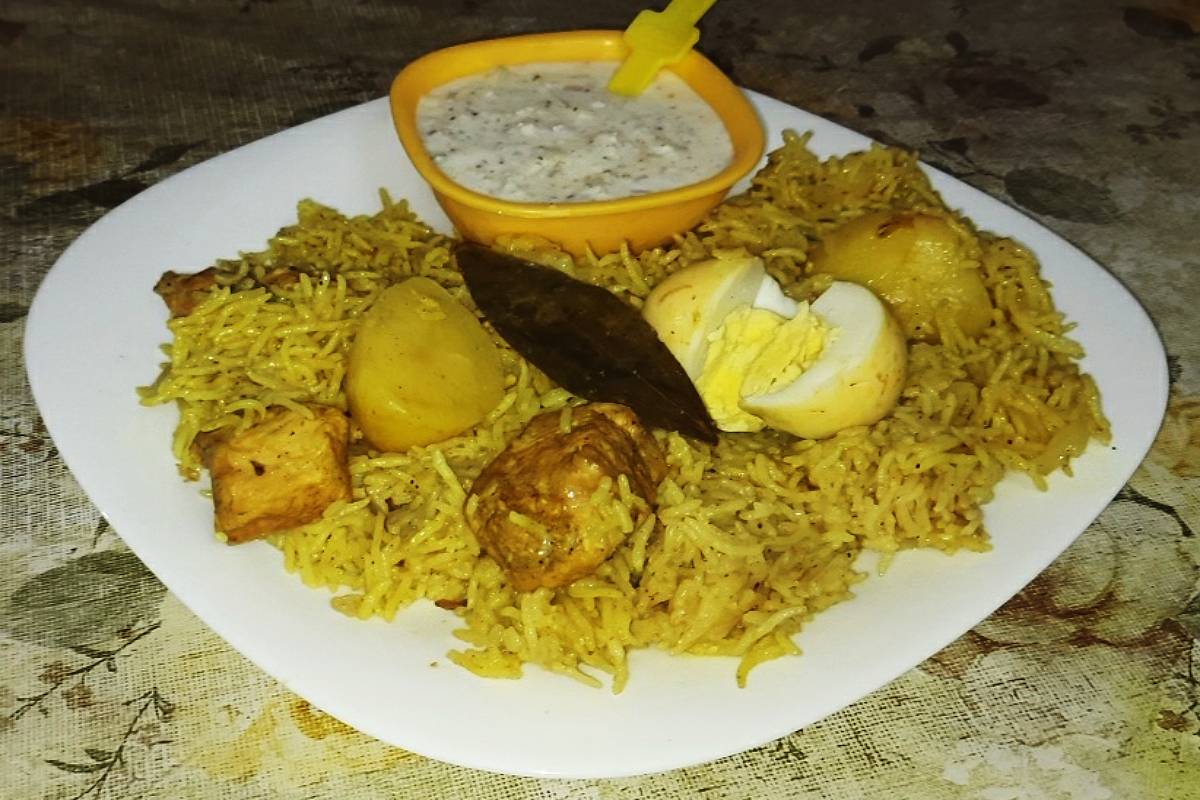It’s hard to find a foodie who is not fascinated by Biryani. To the Biryani lovers, it is a pure emotion. The word ‘Biryani’ comes from the Persian word ‘Birian’, meaning ‘fried before cooking’.
According to Pratibha Karan, who wrote the book Biryani, biryani is of South Indian origin, derived from pilaf (or pulao) varieties brought to the Indian subcontinent by Arab traders. She speculates that the pulao was an army dish in medieval India. Armies would prepare a one-pot dish of rice with whichever meat was available. Over time, the dish became biryani due to different methods of cooking, with the distinction between “pulao” and “biryani” being arbitrary.
Advertisement
Some people believe that the dish originated in Persia and was brought to India by the Mughals. The dish further developed in the Royal Mughal Kitchen. And now, restaurants and food stalls, selling Biryani, can be found in every nook and corner of the Indian cities. With the craze and immense love that this delicious dish receives, Biryani deserved a day of its own. So, 3 July 2022 is being celebrated as the first-ever Biryani Day in the world, to mark the love for the dish.
Advertisement
As per Vishwanath Shenoy, the owner of a biryani restaurant chain in India, one branch of biryani comes from the Mughals, while another was brought by the Arab traders to Malabar, South India.
Biryani is a mixed rice dish. It is made with rice, meat and Indian spices. Sometimes, eggs and potatoes are added too. The rice is flavoured with saffron and bereshtan (fried onions). Not only the non-veg Biryani, but the veg Biryani is becoming popular too. Slowly veg Biryani is taking over pulao. Opinions differ on whether there is actually a difference between pulao and veg-biryani. Definitely there is. Veg Biryani is not Pulao. Many parallels can be drawn when it comes to the origins of veg biryani and pulao. But, the contrasts between the two cannot be overlooked. Pulao is a plain, single-pot dish, whereas, Biryani has stronger spices and the rice, meat (or vegetables) are cooked separately before being layered and cooked together for the gravy to absorb into the rice. Biryani contains more gravy and takes a longer time to cook.
The best five Biryanis of India are –
The Kolkata Biryani: The speciality of the Biryani, served in the City of Joy, is the addition of boiled potatoes and eggs to the traditional rice and meat recipe.
The Lucknowi Biryani: Nuts, saffron and sometimes milk are used, along with rice, meat and spices, while preparing the delicious dish. It is also known as Awadhi Biryani.
The Hyderabadi Biryani: This Biryani is made with half boiled rice which is layered with fried onions, mint and cooked mutton, sealed with dough and slow cooked in ‘dum‘ style.
The Kashmiri Biryani: To make this Kashmiri style Biryani, rice and meat are cooked in ghee. Yogurt, saffron and aromatic spices are added too.
The Malabari Biryani: The traditional Biryani recipe gets a regional twist. While making the Malabari Biryani, instead of meat, fish fillets are used.
The Managing Director & CEO of LT Foods Ltd, Ashwani Kumar Arora has stated that biryani is a ‘celebration of being together’. Biryani is relished around the globe in different countries by different age groups of people. The constant accompaniment of the Biryani is Raita (made by adding cucumber, onion and roasted spices to yogurt.) In Hyderabad specially, Biryani is served with Mirchi ka Salan (contains green chilli peppers, peanuts, sesame seeds, dry coconut, cumin seeds, ginger and garlic paste, turmeric powder, bay leaf, and thick tamarind juice). In some other regions of India, Biryani cannot be mentioned without mentioning Chicken Chaap. In India, different regions have different food habits but all are united by Biryani.
Advertisement











